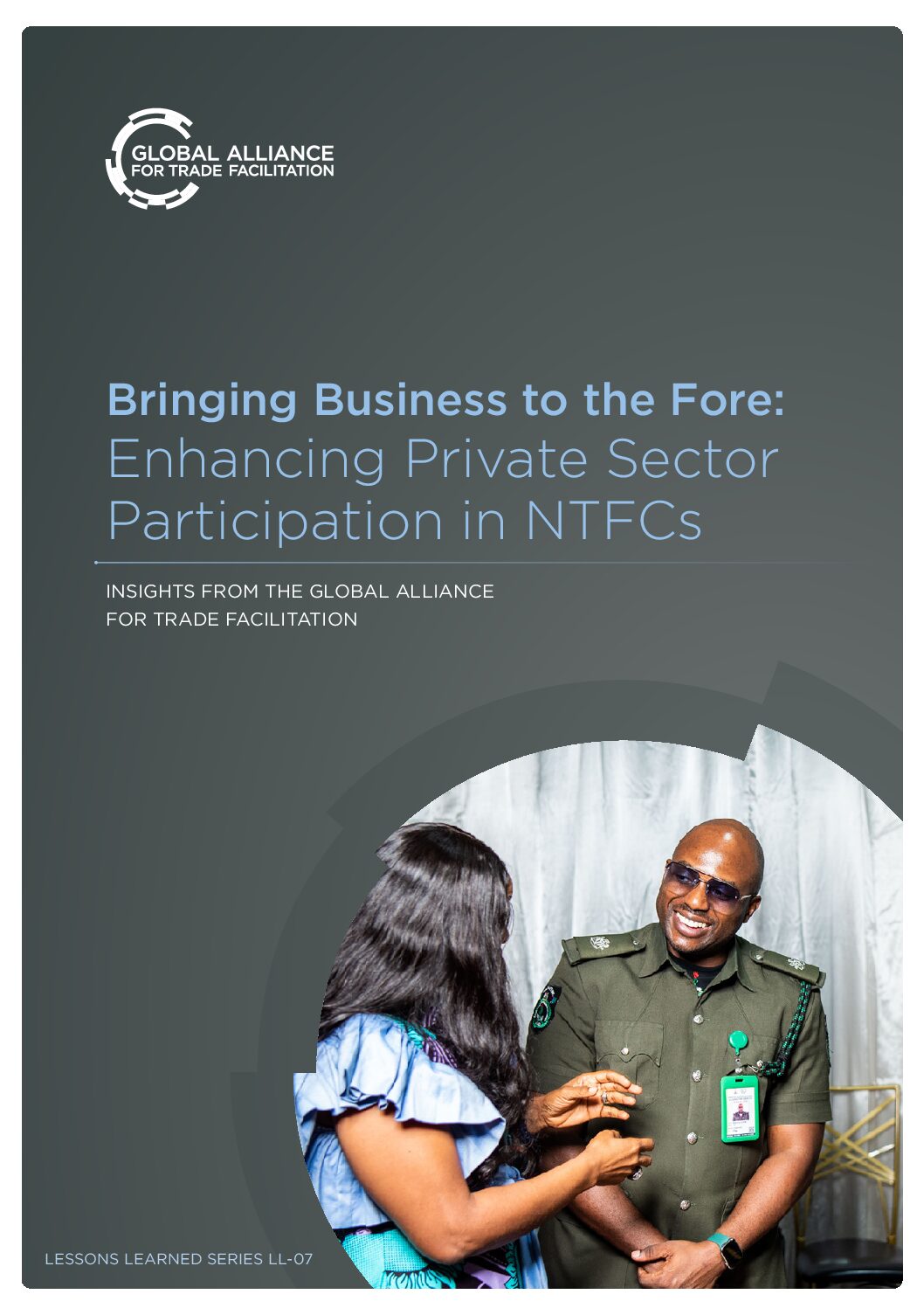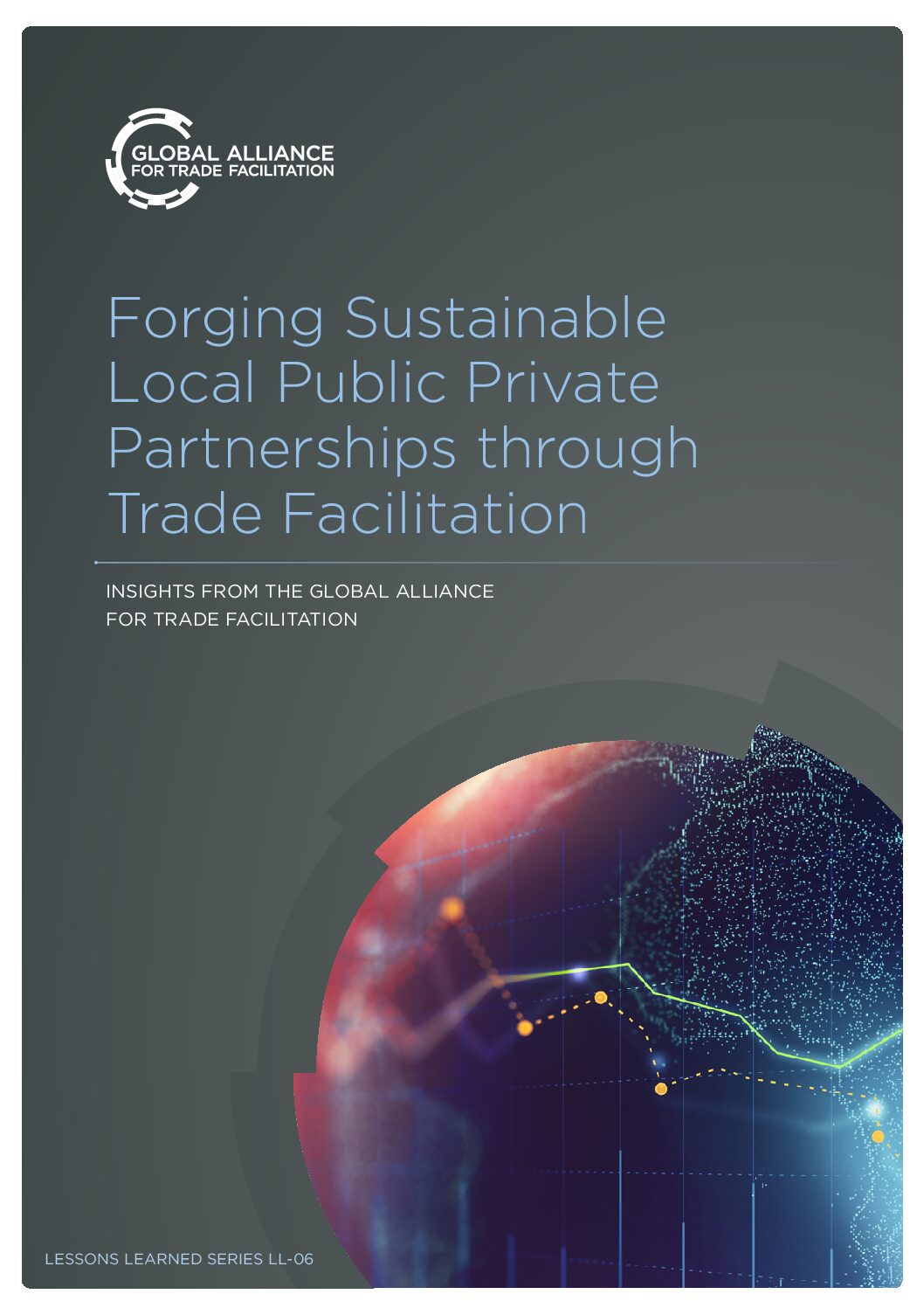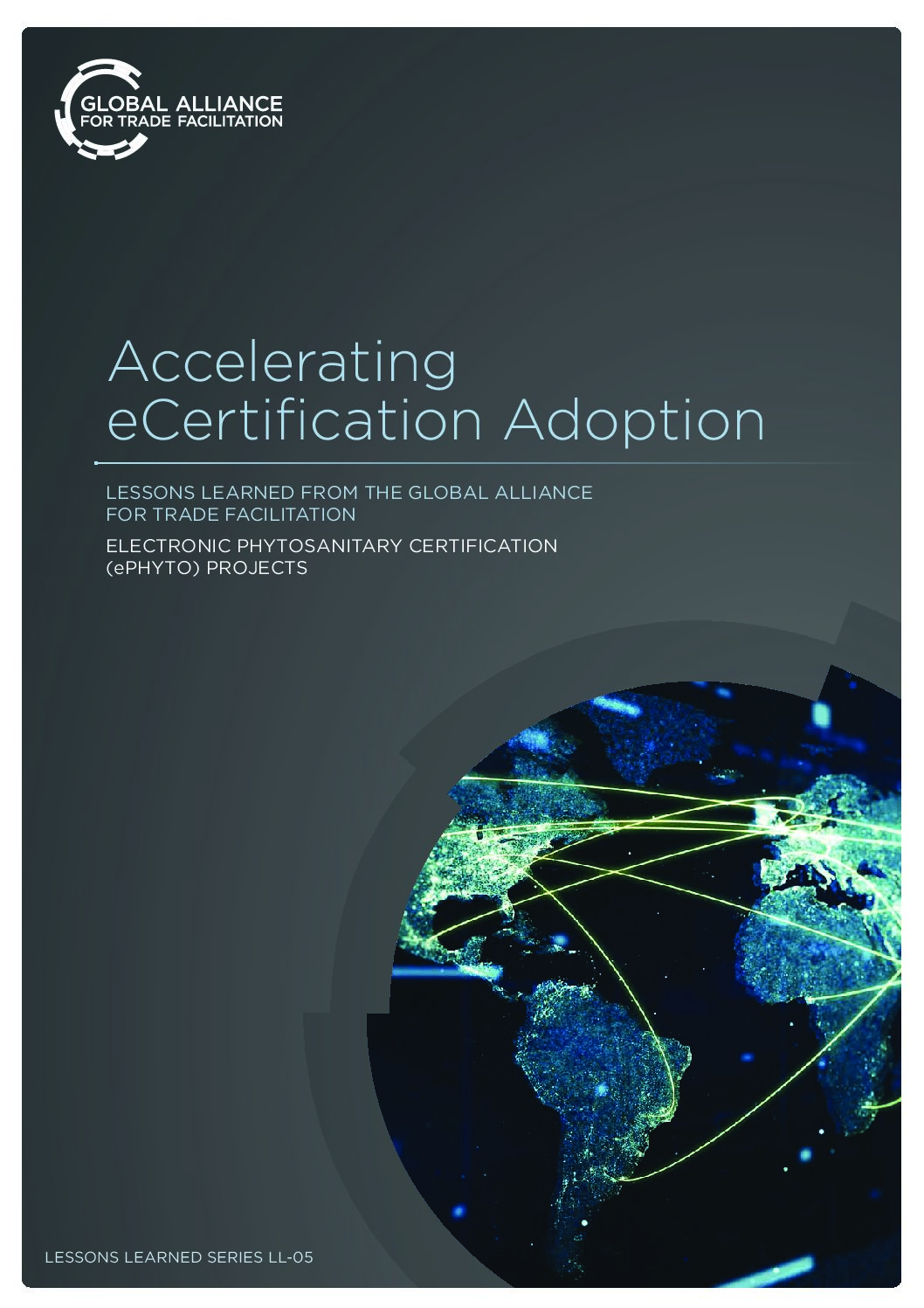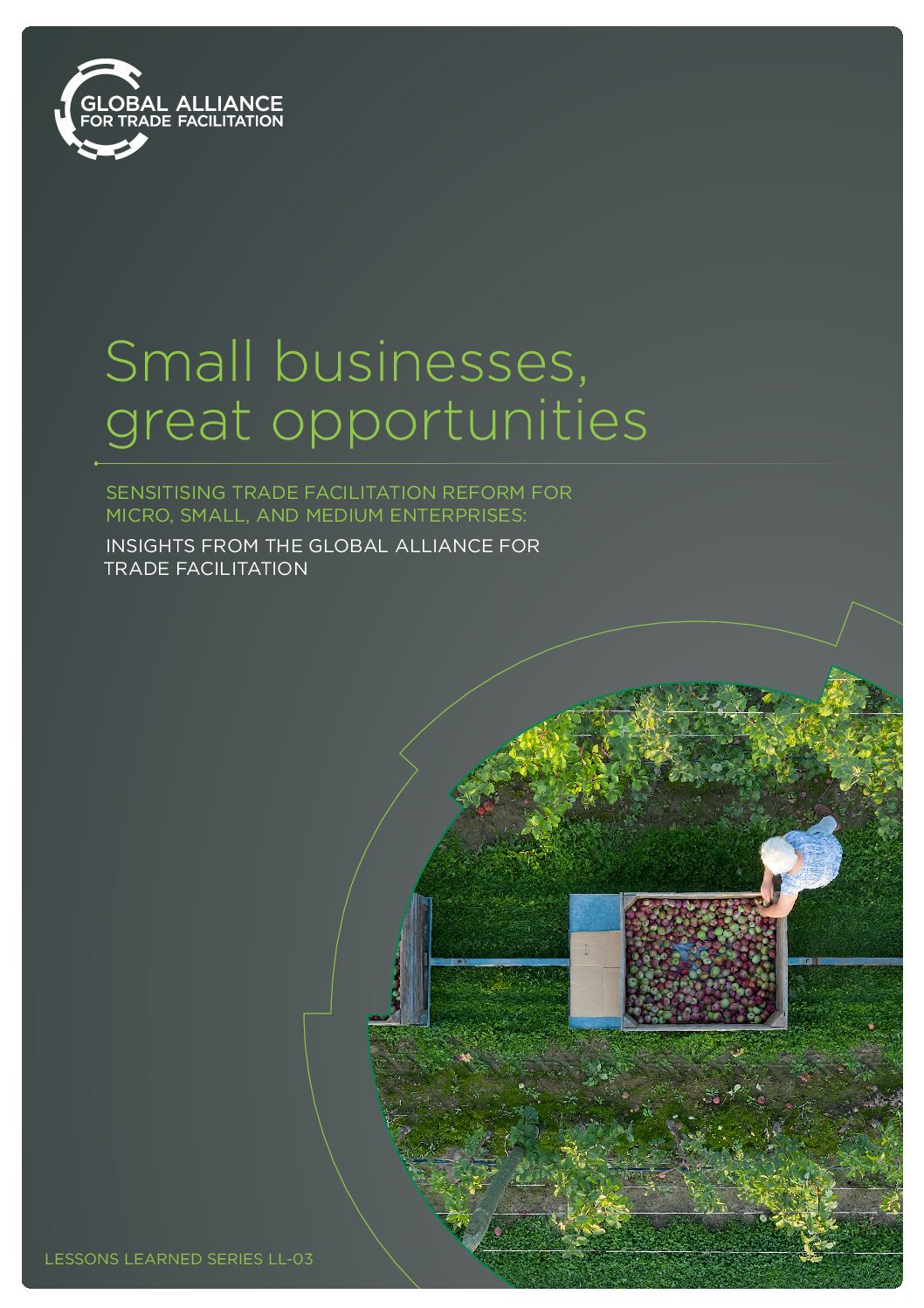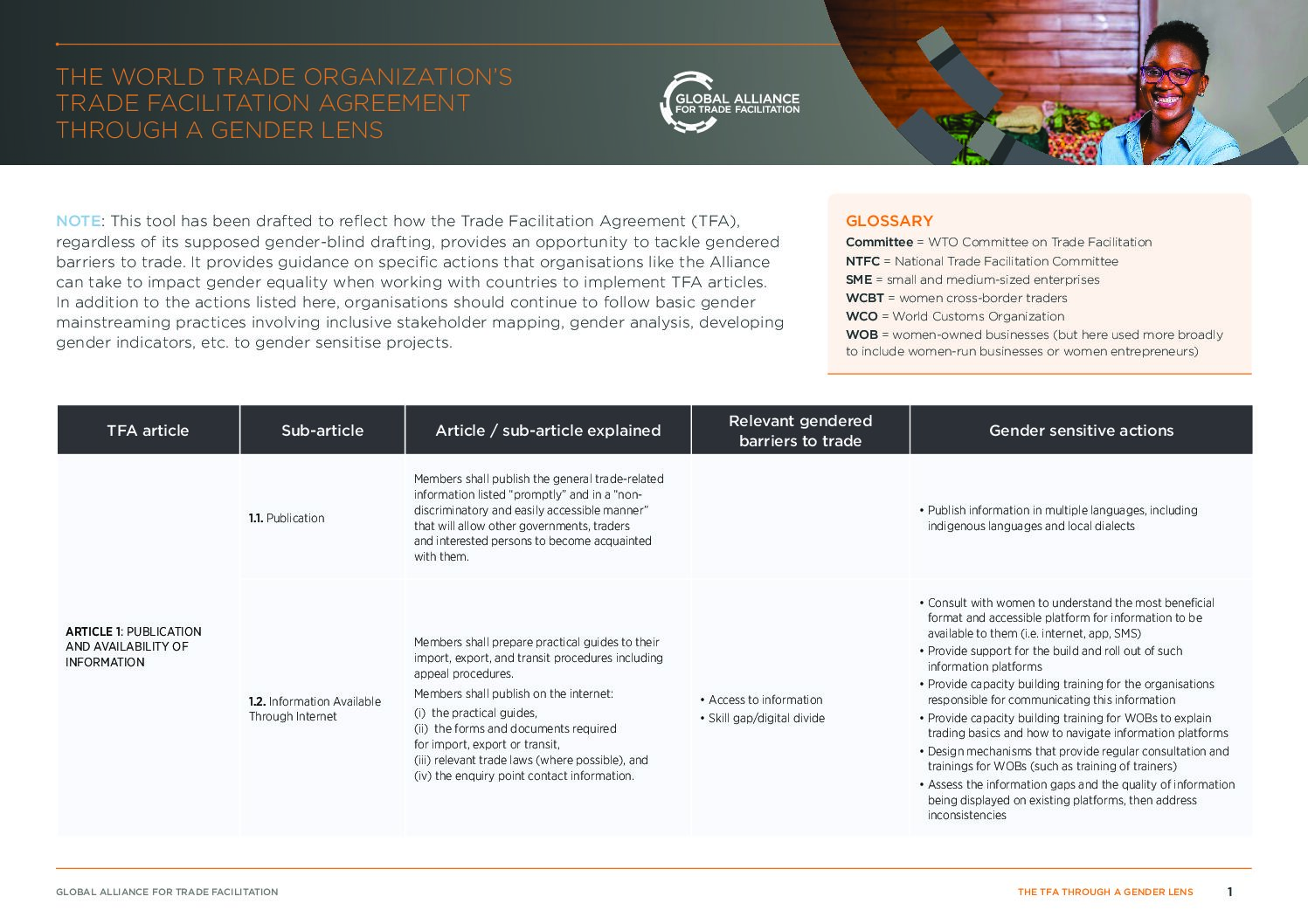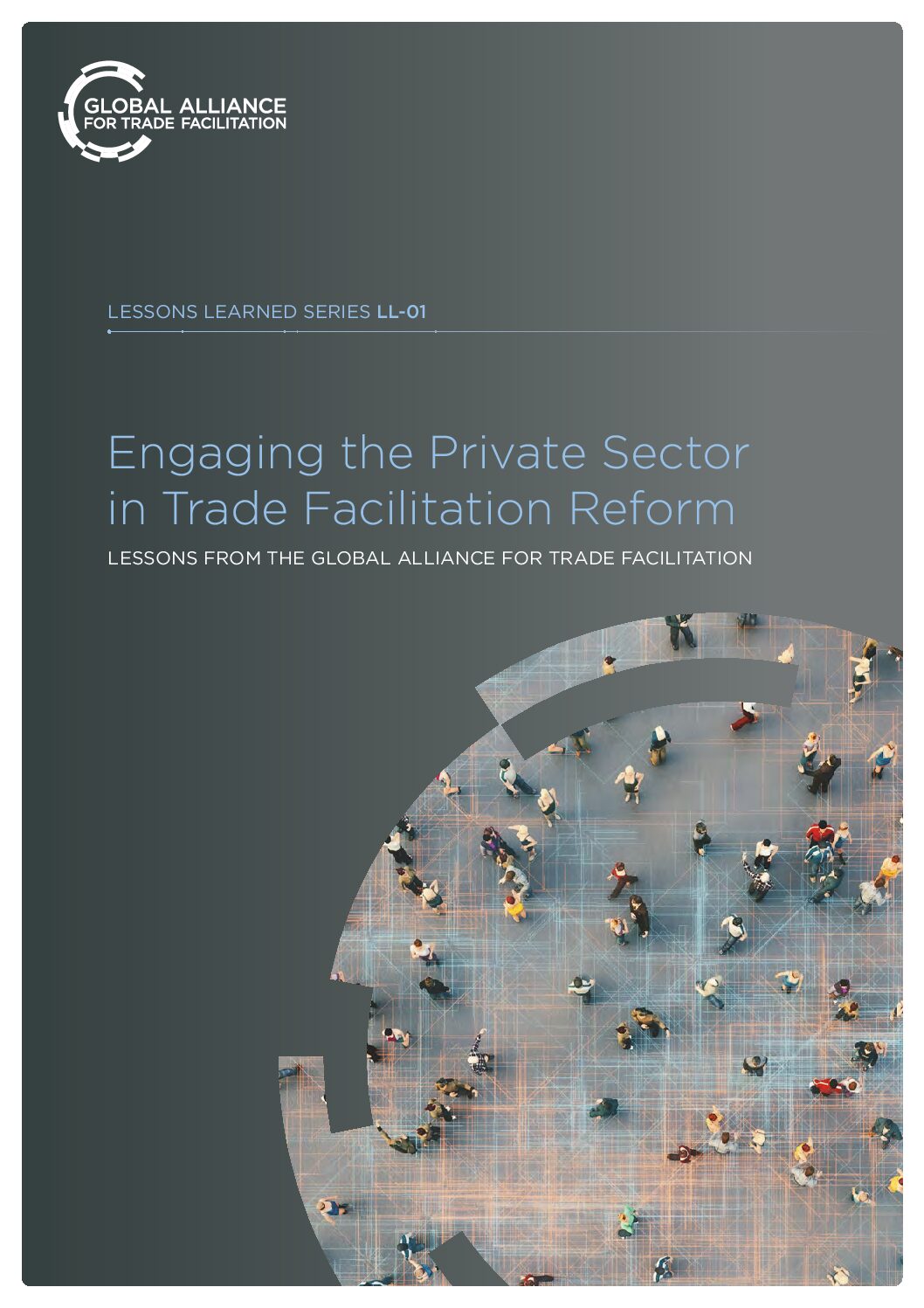
Our Lessons Learned
Bringing Business to the Fore: Enhancing Private Sector Participation in NTFCs
National Trade Facilitation Committees (NTFC) need strong public-private collaboration to create impactful and sustainable trade facilitation reforms. However, certain factors must exist to facilitate a strong public-private collaboration in the NTFC. This paper shares learnings from the Alliance’s work in different countries including Kenya, Colombia and Jordan to improve private sector participation in NTFCs.
Forging Sustainable Local Public Private Partnerships through Trade Facilitation
Trade facilitation traditionally lies within the purview of governments; however, trade reforms are most successful when the private sector plays an active role in the process. Every Alliance project is launched with the full support of the beneficiary government and the local private sector. In this paper, we share our lessons learned from building public private partnerships in over 30 countries.
Accelerating eCertification Adpotion
This paper offers practical guidance on how to overcome challenges in implementing digital transformation using a public private partnership approach – from achieving initial buy-in from government and business, to managing change, to ensuring long-term sustainability.
Trade Facilitation Reform as a Trust Catalyst
The Alliance’s Trade Facilitation Reform as a Trust Catalyst study examines relations between private sector stakeholders in the Colombian automotive industry and Customs, measuring transformative cooperation between the two. The results have promise for applicability outside of the trade space, showing that trust and reform across a variety of areas – from economic development to environmental regulation – can work hand in hand to increase public-private cooperation.
Small Businesses, Great Opportunities
Small businesses are the backbones of national economies, generating value and employment for local communities as they grow. The Alliance’s paper showcases research that confirms MSMEs should be the primary beneficiaries of trade facilitation reforms and suggests ways that these efforts can do better at making the process more attune to their particular needs.
Gender Sensitising Trade Facilitation Reform
There is growing acknowledgement that trade reform is not gender neutral, thus specific action must be taken to ensure that neither women nor men are negatively impacted by trade facilitation programmes. In particular, women and men are uniquely affected by trade due to the different roles they play in society as producers, consumers, business owners and traders. Recognising this, the Alliance has undergone a process to gender sensitise its work helping countries to implement the Trade Facilitation Agreement. This paper summarises the lessons learned by the Alliance in building its gender mainstreaming approach and provides new insights on the nexus between gender and trade facilitation.
Engaging the Private Sector in Trade Facilitation Reform
This paper draws on the experience the Global Alliance for Trade Facilitation has garnered in working with the private sector in the identification, design and implementation of trade facilitation projects in developing and least developed countries. It examines the challenges commonly faced in involving businesses in trade facilitation reform, presents the approach adopted by the Alliance to operationalise the role of business in its activities and the results achieved so far, and identifies emerging success factors in private sector engagement.

